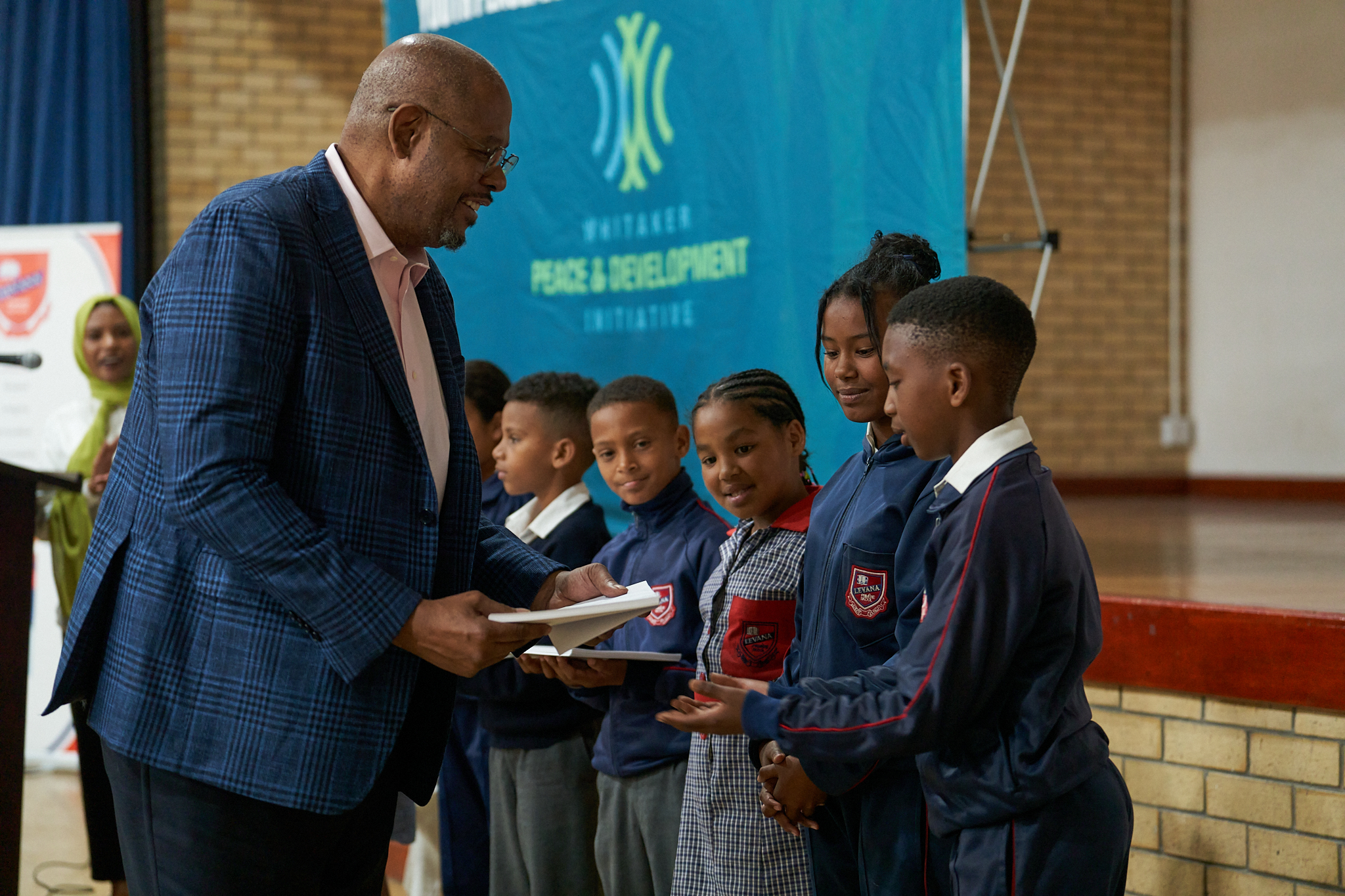A blog post by Forest Whitaker on International Day of Peace
September 21, 2024

Every year, on September 21, the United Nations invites the world to come together and celebrate peace. This recurring observance is never dull, as the global landscape of peace and security is constantly evolving. Over the past years, though, Peace Day has been marked by dark news from a global context that feels increasingly difficult and challenging. 2024 was no different as Eastern Europe continued to rage with war and the Middle East burst with levels of violence that had not been witnessed for years. However, this year, as we reach September 21, there is a bit of light in such darkness, as we celebrate the hopes created by the 25th anniversary of the United Nations General Assembly’s adoption of the Declaration and Programme of Action on a Culture of Peace.
This declaration, a visionary acknowledgment, was a pivotal moment in our shared history, underscoring that peace is not just the absence of conflict but a positive process grounded in values, attitudes and behaviors conducive to dialogue, mutual understanding, and cooperation. Peace is a culture that must inhabit the hearts and souls of everyday people.
In today’s world, fraught with rising geopolitical tensions and persistent conflicts, the principles outlined in that historic declaration are not just relevant, but urgent. Reflecting on the past 25 years, I am reminded of the profound wisdom imparted by Archbishop Desmond Tutu, who once said, “My humanity is bound up in yours, for we can only be human together.” This sentiment resonates deeply with me, underscoring that our collective potential is far greater than any individual’s effort. When we come together, embracing each other’s humanity and acknowledging our shared destiny, we unlock extraordinary possibilities for change. This is especially true at the grassroots level, having in mind that the truce agreements signed by politicians and diplomats cannot translate in lasting peace without what the UNESCO Constitution termed, “the unanimous, lasting and sincere support of the peoples of the world.”
This year’s theme for the International Day of Peace, “Cultivating a Culture of Peace,” invites us to recognize this cultural and social dimension of peace. It requires ongoing education for children and adults, a regular practice of dialogue, and daily engagement to build a world where understanding and cooperation prevail over discord. This process starts with the values instilled in us through formal and informal education, shaping our approach to conflict resolution and mutual respect.
Throughout my years at the helm of my organization, the Whitaker Peace & Development Initiative, I have been particularly inspired by the local peacemakers and community actors who embody these principles daily. Their dedication and impact often serve as a powerful reminder of how local actions ripple outward, transforming communities and, ultimately, the world. I have witnessed firsthand the profound influence of grassroots peacebuilding efforts.
One vivid example comes from our work with youth in conflict-affected areas. I recall the resilience and determination of young people in South Sudan, who, despite their challenging circumstances, used their training and communication tools to bridge ethnic divides and foster dialogue. I think of Esther Kide, a South Sudanese graduate of our Peace Through Sports Program at the Kiryandongo Refugee Settlement in Uganda, now plays as a striker on South Sudan’s Female Soccer Team. Her journey illustrates how peacebuilding is a complex, multifaceted process that encompasses various layers, all centered on our shared humanity.
True peace is built through diverse efforts that connect people across cultures, religions, nationalities, and languages. Whether through sports, education, community dialogue, or economic empowerment, every layer of peacebuilding emphasizes the dignity and value of each individual. These efforts foster respect, tolerance, and cooperation, reminding us that lasting peace is rooted in understanding and uplifting the human spirit
As we observe this International Day of Peace, let us honor the contributions of local community leaders, the network of international NGOs, charities, and private actors committed to the sustainable development of peace globally. Their efforts remind us that the journey towards peace is collective, where each person’s actions contribute to a more significant, global movement. Our shared humanity and interconnectedness are at the heart of this endeavor, and together, we have the power to shape a more peaceful future.
By embracing the values of cooperation and mutual respect, we honor the vision of the United Nations – that of nations truly united – and contribute to a legacy of peace that will resonate for generations to come.
Against the present background of looming conflicts, we must never forget that our survival as a global community depends on our ability to work together, to bridge divides, and to build a world where peace is not just an aspiration but a lived reality. Let us celebrate this International Day of Peace by reaffirming our dedication to a culture of peace where every action, no matter how small, contributes to a more harmonious and inclusive world.
In Peace,
Forest Whitaker